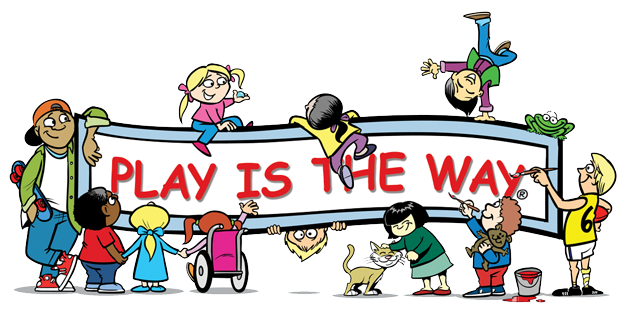
By Wilson McCaskill
In the understanding that each of us, as adults, is trying to be the best role model we can be, we are obliged to maintain the quality of that model at the time when the child needs help the most. And the time when the child needs help the most is when their own behaviour is in a state of collapse.
Frequently, when a child does something inappropriate, it’s because emotions have taken over from reason. They have become a victim of their emotions and there is every likelihood the predominant emotion was anger or one of its many derivatives.
Anger is a consuming emotion and negates the capacity to think. It is also highly infectious. When children act inappropriately, out of anger, we frequently find ourselves taking charge of the situation by using our own angry response. We have momentarily caught the disease and we are trying to fight fire with fire. At this point our modelling has broken down and our message to the child is contradictory and confusing and like the child we are dealing with, we have entered a feeling state and not a thinking state.
Something needs to change our point of view. Something needs to override our emotional response and guide us into a thinking state.
To change our point of view we need to recognize and accept that inappropriate behaviour is a plea for help. In fact, the more difficult or aberrant the child’s behaviour, the greater is their plea for help.
Children who find it hard to control their behaviour obviously find it hard to behave in an alternative and more acceptable manner. They especially find it hard to make a verbal request for help when they are in a situation that is quickly overwhelming their emotions. So they act out, they do inappropriate things; they make a plea for help in the only way they know how.
Very few children genuinely like doing the wrong thing. Very few children like to be in a toxic emotional state. Most children would prefer to be happy and harmonious. When they are not, the sensations are unpleasant, disturbing and sometimes debilitating. They need help and to get it they require the firm, compassionate, guiding hand of someone who cares.
To be compassionate in moments like these is not easy. It’s far easier to seek revenge – to want to put the child in their place – to instil fear or have them bow down to our authority, our size or our own escalating anger.
Can you imagine the plight of a doctor who lacks compassion? Can you imagine how hard it would be to treat the wounds of a person who had inadvertently been caught by the shockwave of a bomb that they had detonated and which had killed many?
Can you imagine the temptation to leave the perpetrator unattended or indeed to hurt and harm them for the hurt and harm they had caused? Yet, something must step in. Something must override the doctor’s emotions to help them alleviate the pain of the person who is now their patient. At this point the doctor’s belief system steps in. It is the moral obligation of the doctor to, cure when possible, relieve often and to care always.
If doctors can do it, I’m sure that teachers can. I’m sure that teachers can override their emotions by adopting a compassionate point of view. I’m sure they can demonstrate to the child in difficulty that they have seen and heard the child’s plea for help.
I’m sure teachers can, without malicious intent, but with strength and purpose, guide the child through a process that will help them gain the skills they need for emotional self-control. Skills that will, with time, allow the child to behave in a manner that fits with the requirements and standards of their family, peers, community and most importantly, themselves.
Compassionate, firm guidance – a scenario
NOTE: The game of Timeball is in the Play Is The Way® Methodology Manuals Volume 2
Martin is playing Timeball and for the third time in a row he has forced a restart of the game by deciding to throw a long pass that failed to be caught.
A barrage of complaints from the class has him exploding in a rage. He verbally abuses a few students and storms out of the game. He stops at the periphery of the playing area and sits down with his back to the group while screaming an expletive or two.
Teacher: (Strong, calm) I can understand your frustration and annoyance boys and girls. Martin’s decisions have been costly to you and to him. Let’s take a short break. Please sit in small groups and enjoy a chat while I see if Martin can help himself back to a happier more helpful place.
(Teacher walks up to Martin and lowers herself beside him. She speaks in a soft but firm voice that is monotone).
I’m confused Martin. I don’t understand why you treat yourself so poorly. You enjoy feeling happy. You like to feel good and smiling certainly suits you. But you spend so much time being angry and upset. Help me to understand that.
Martin: (He is hugging his knees and his head is buried in his lap. There is a lot of tension in his body and he works at maintaining his anger. His answer is overly emphatic and aggressive).
They shouted at me.
Teacher: (A small pause to allow Martin to be aware of the sound of his own response).
And when they did they felt something like you’re feeling now – and it’s not nice, it’s unpleasant and they, like you, don’t like it. That’s the bit I don’t get Martin. Why you do things that end up getting you upset.
PAUSE
There are no freebie feel goods Martin. You earn them. You earn them by your actions.
Martin: (Continues his attempt to convince himself that his class is responsible for the way he feels). They always pick on me.
Teacher: But only after you have picked on yourself. (Deliberately repeating the theme) I just don’t understand it Martin.
PAUSE
You see, Martin, I think it’s time you started to believe in your own value and treated yourself with respect and pride.
Martin: (His anger is subsiding and revealing a sense of hurt. His voice is emotional and faltering).
I respect myself. It’s them, they don’t respect me.
Teacher: (Placing a comforting hand on his shoulder. He flinches and she removes it while talking).
People who believe in themselves, people who stand tall, they work hard to get themselves good feelings. They do good to feel good. Doing good isn’t always easy. In fact, it can be very hard but the feel good you get makes doing good worth it.
(The teacher exploits the power of repetitive phrases).
You spend too much time working at being angry. You spend too much time upsetting others so that you can be upset as well. You spend too much time cheating yourself of the happy times that you like to have. You spend too much time doing and saying things that spoil your day.
Martin: (He is slightly teary and tries to kick up his aggression to stem the flow of tears). They spoil my day.
Teacher: (Continues on. Her voice is strong, calm and purposeful). And you spend too much time running away from the responsibility and difficulty of doing good to feel good.
Martin: Leave me alone.
Teacher: That would be too easy Martin. Too easy for you and for me. And because we both really care about you let’s hang in there for a bit longer.
Martin: I’m not listening.
Teacher: (Lightening up a bit). I think doing and saying wrong or inappropriate things is becoming a habit for you. A habit that is robbing you of good feelings that last. And instead of good feelings that last you’re left with feelings you don’t like and which take a long time to go away.
PAUSE
(Tries putting a hand on his shoulder again – this time he accepts it). You’re still upset. However, if you look at your group you’ll see they are not. They have got over it. They have moved on and are having a fine time enjoying each other’s company.
(Calling out to the class)
Boys and girls, thank you for doing the right thing. I’m glad you’re enjoying your chat, but I’ll be back to start the game in a few seconds so please get yourselves into position. (To Martin) We are all in charge of our own happiness Martin. Only the foolish amongst us think that we can find real happiness that lasts by doing what is wrong to ourselves or to others.
I’m going to go back and start the game. I’d like you to join us. It will take courage to come back and it will take even more to do the right and best thing with the ball when you get it. I hope you can find that courage. (She prepares to move away). Remember, no freebie feel goods. Respect yourself and others and find what it takes to do good. Every time you do good you will be breaking your old habit and making a new one and Martin, the new habit will be a lot better for you.
(Kicking out of her prior demeanour, energizing her voice and modulating her delivery).
Alright boys and girls, you have all been very patient and both Martin and I thank you for that. Let’s start the game and see if you can break your past record. Martin, I hope you will join us when you’re ready to do so and boys and girls I hope you will make him feel welcome when he does.
[After this go of the game Martin slips into a position at the edge of the group]
Now, before we try again make sure you’re aware of where everyone is. We’ve got Bobby way out there, Angie and Rachel with their backs to each other, Martin on the far side and we will have to be careful about the gap between James and Sean. Ready and go.
[The game is played. Martin does the right thing. Although noting it the teacher makes no mention of it. After a couple of very good attempts….]
You have all worked well together. You have made strong decisions, expected a lot from each other and been forgiving when mistakes have happened. You have used your energy to support and motivate each other and not wasted it by undermining and upsetting each other. Martin, you walked away but found the courage to walk back. Now, keeping up your courage would you like to apologise to the group for your earlier actions and the inappropriate and unnecessary things you said?
(Martin apologises)
Thank you Martin. It has been a good session and we are all improving the essential habit of being reasoned and responsible. Girls and boys we are all getting stronger as we get better at things.

